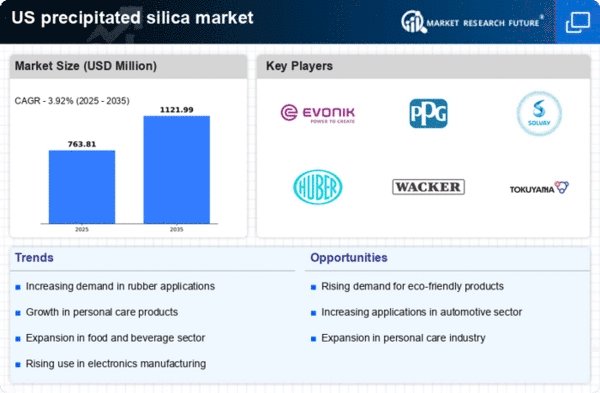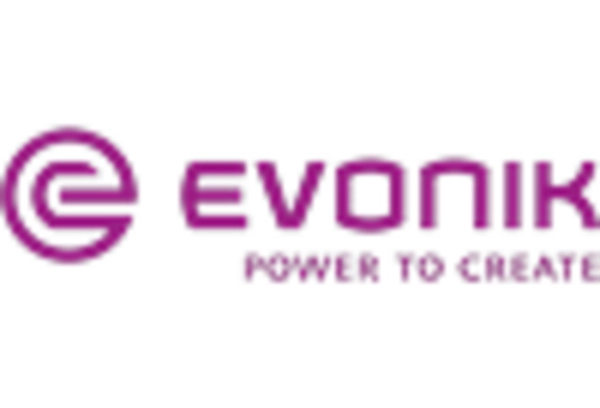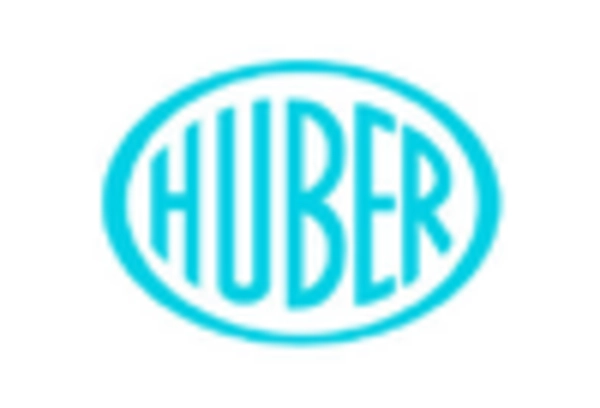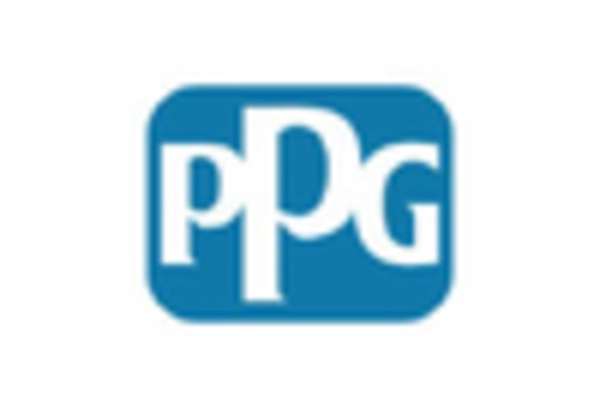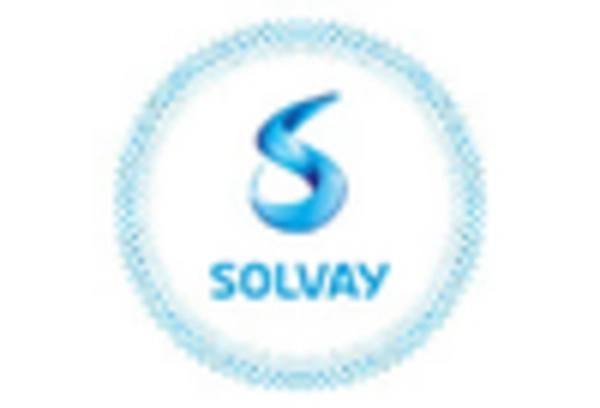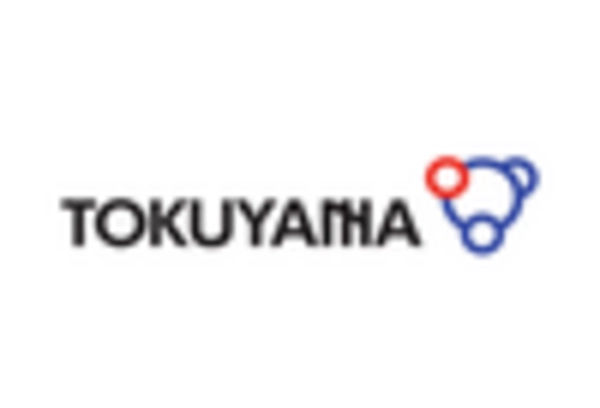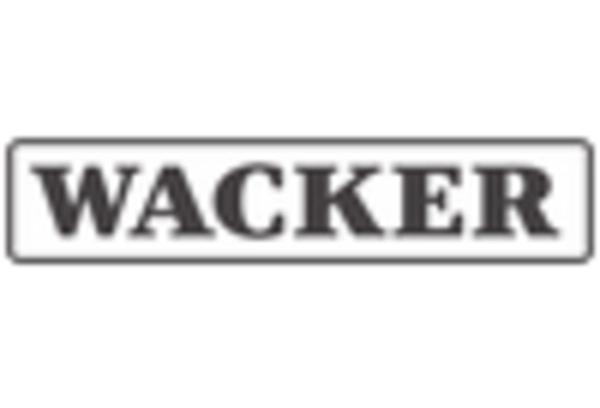The precipitated silica market exhibits a dynamic competitive landscape characterized by innovation and strategic positioning among key players. Companies such as Evonik Industries (Germany), PPG Industries (US), and Solvay (Belgium) are at the forefront, leveraging their technological capabilities and extensive product portfolios to capture market share. Evonik Industries (Germany) focuses on enhancing its product offerings through continuous research and development, while PPG Industries (US) emphasizes sustainability in its operations, aligning with growing environmental concerns. Solvay (Belgium) appears to be concentrating on expanding its global footprint, particularly in emerging markets, thereby intensifying competition within the sector.The market structure is moderately fragmented, with several players vying for dominance. Key business tactics include localizing manufacturing to reduce costs and optimize supply chains, which is becoming increasingly vital in a landscape marked by fluctuating raw material prices. The collective influence of these major companies shapes the competitive dynamics, as they strive to differentiate themselves through innovation and operational efficiency.
In September PPG Industries (US) announced the launch of a new line of eco-friendly precipitated silica products aimed at reducing environmental impact. This strategic move not only aligns with global sustainability trends but also positions PPG as a leader in environmentally responsible manufacturing. The introduction of these products is likely to attract environmentally conscious consumers and businesses, enhancing PPG's market presence.
In October Evonik Industries (Germany) unveiled a partnership with a leading automotive manufacturer to develop specialized silica solutions for tire applications. This collaboration underscores Evonik's commitment to innovation and its strategic focus on high-performance materials. By aligning with a major player in the automotive sector, Evonik is poised to strengthen its market position and drive growth through tailored solutions that meet specific industry needs.
In August Solvay (Belgium) completed the acquisition of a regional silica producer, which is expected to enhance its production capabilities and expand its customer base in North America. This acquisition reflects Solvay's strategy to consolidate its market presence and improve operational efficiencies. The integration of the acquired company is anticipated to provide Solvay with a competitive edge in terms of cost and supply chain management.
As of November the precipitated silica market is increasingly influenced by trends such as digitalization, sustainability, and the integration of artificial intelligence in production processes. Strategic alliances are becoming more prevalent, as companies seek to leverage complementary strengths to enhance their competitive positioning. The shift from price-based competition to a focus on innovation, technology, and supply chain reliability is evident, suggesting that future differentiation will hinge on these factors rather than traditional pricing strategies.


